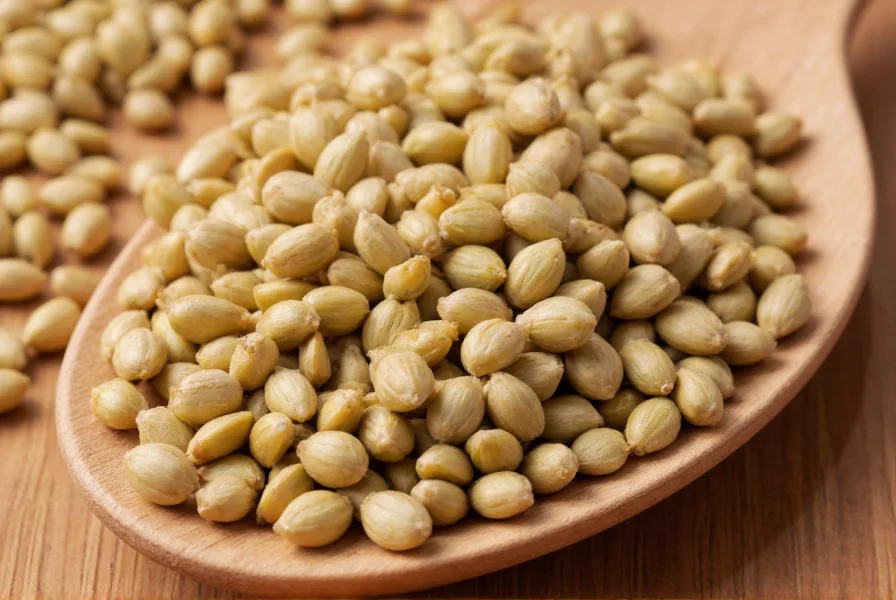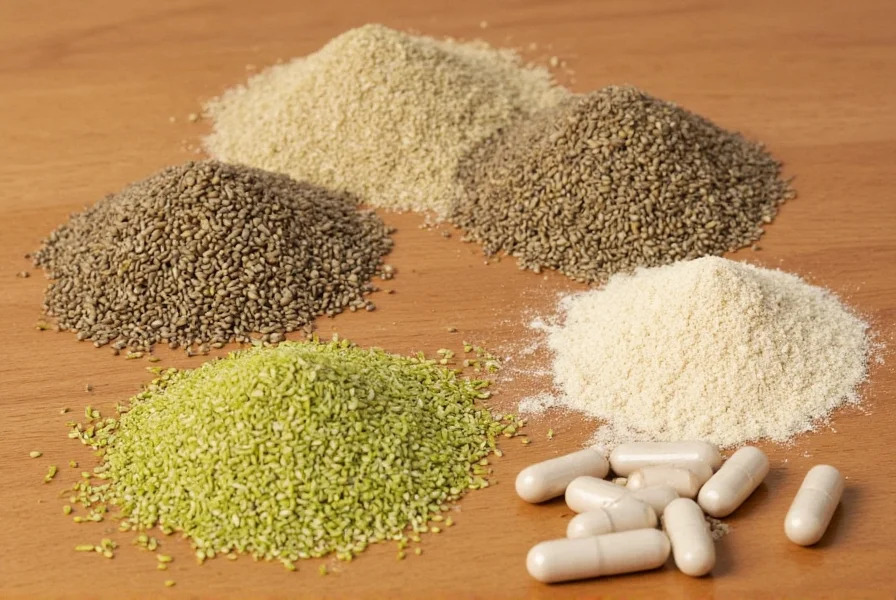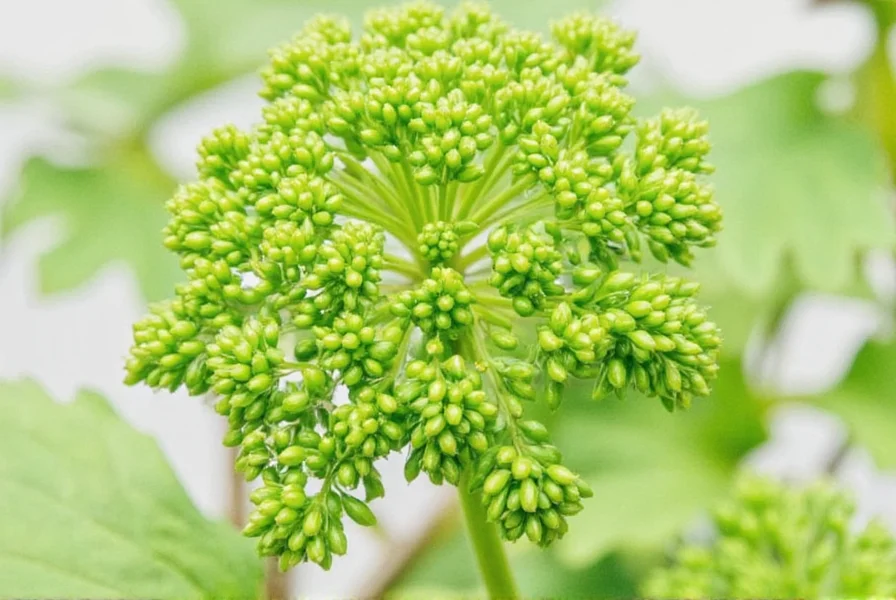Celery seed, derived from the small fruits of Apium graveolens, has been used in traditional medicine systems for centuries. Unlike the more commonly consumed celery stalks, the seeds contain a higher concentration of beneficial phytochemicals that contribute to their therapeutic potential. Modern scientific research is increasingly validating many of these traditional uses while providing insight into appropriate usage and limitations.
Understanding Celery Seed Composition
Celery seed's health-promoting properties stem from its unique chemical profile. The most studied compound is 3-n-butylphthalide (3nB), which constitutes approximately 60-70% of the seed's essential oil. This compound, along with other bioactive elements including flavonoids, polyacetylenes, and volatile oils, creates a synergistic effect that contributes to celery seed's potential health benefits.
Research published in the Journal of Agricultural and Food Chemistry identified over 20 different antioxidant compounds in celery seed extract, with notable concentrations of apiin and luteolin. These compounds work together to provide the natural anti-inflammatory properties of celery seed that have attracted scientific interest.

Key Evidence-Backed Health Benefits
Natural Anti-Inflammatory Effects
One of the most well-documented celery seed benefits is its ability to reduce inflammation. A 2017 study in Phytotherapy Research demonstrated that celery seed extract significantly inhibited inflammatory markers like TNF-α and IL-6 in laboratory models. This makes celery seed particularly relevant for those seeking natural approaches to managing inflammation-related conditions.
The anti-inflammatory properties of celery seed may be especially beneficial for joint health. Research suggests regular consumption of standardized celery seed extract could help reduce discomfort associated with occasional joint stiffness, though it should not replace medical treatment for chronic conditions.
Blood Pressure Regulation Support
Several studies indicate celery seed may support healthy blood pressure levels within the normal range. The compound 3nB appears to work through multiple mechanisms, including mild diuretic effects and potential calcium channel blocking activity.
A clinical trial published in the British Journal of Biomedical Science found that participants taking 150mg of celery seed extract twice daily showed modest but statistically significant reductions in both systolic and diastolic blood pressure after 16 weeks. Researchers noted these effects were most pronounced in individuals with elevated readings at baseline.
| Benefit Category | Key Compounds Involved | Research Status |
|---|---|---|
| Anti-inflammatory | 3nB, apiin, luteolin | Strong laboratory evidence, moderate clinical evidence |
| Blood pressure support | 3nB, phthalides | Moderate clinical evidence |
| Antioxidant protection | Flavonoids, polyacetylenes | Strong laboratory evidence |
| Digestive support | Volatile oils | Preliminary evidence |
Significant Antioxidant Activity
Celery seed demonstrates impressive antioxidant capacity, with an ORAC (Oxygen Radical Absorbance Capacity) value significantly higher than many common foods. The combination of flavonoids, vitamin C, and other phytochemicals creates a protective effect against oxidative stress.
Research in the Journal of Medicinal Food compared the antioxidant activity of various celery plant parts and found the seeds contained approximately three times more antioxidant compounds than the stalks. This scientific evidence supporting celery seed benefits suggests regular, moderate consumption could contribute to overall cellular protection.
Practical Usage Guidelines
Understanding how to use celery seed for health benefits is crucial for maximizing potential advantages while minimizing risks. Celery seed is available in several forms:
- Whole seeds: Can be used in cooking or made into tea (1-2 teaspoons per cup of hot water)
- Ground powder: Easier to incorporate into foods and beverages
- Standardized extract: Typically provides 75-150mg of 3nB per dose
- Essential oil: Highly concentrated; should be used with professional guidance
The recommended dosage of celery seed varies by form. For general wellness support, most studies use 150-300mg of standardized extract daily, divided into two doses. When using whole seeds, 1-3 grams per day is generally considered safe for most adults. It's important to note that celery seed benefits for arthritis and other specific conditions may require different dosing protocols under professional supervision.

Safety Considerations and Potential Interactions
While celery seed offers potential health advantages, understanding potential side effects of celery seed consumption is essential. Some individuals may experience:
- Mild digestive upset when first introducing celery seed
- Skin sensitivity to sunlight (photosensitivity) with high doses
- Potential interactions with blood pressure medications
- Uterine stimulation, making it unsuitable during pregnancy
Celery seed interactions with medications require particular attention. The seed's potential blood pressure-lowering effects could amplify the action of antihypertensive drugs. Additionally, its mild diuretic properties might affect potassium levels when combined with certain diuretic medications.
Individuals with celery allergies should avoid celery seed entirely, as cross-reactivity is common. Those scheduled for surgery should discontinue celery seed at least two weeks beforehand due to potential effects on blood pressure and bleeding risk.
Celery Seed vs. Celery Stalks: Understanding the Differences
Many people wonder about celery seed benefits compared to celery stalks. While both come from the same plant, their nutritional and phytochemical profiles differ significantly:
- Celery seeds contain approximately 10 times more 3nB than the stalks
- The seeds have higher concentrations of essential oils and volatile compounds
- Stalks provide more dietary fiber and vitamin K
- Seeds offer more concentrated therapeutic potential but in smaller edible quantities
For those specifically seeking the anti-inflammatory properties of celery seed, the seeds or standardized extracts provide more targeted benefits than consuming celery stalks alone. However, incorporating both into a balanced diet offers complementary advantages.
Integrating Celery Seed into Your Wellness Routine
To safely incorporate celery seed into your health regimen:
- Start with small amounts to assess tolerance
- Consider standardized extracts for consistent dosing of active compounds
- Combine with a balanced diet rich in fruits and vegetables
- Consult with a healthcare provider if you have existing health conditions
- Monitor your body's response and adjust dosage as needed
For culinary use, try adding ground celery seed to soups, stews, or salad dressings. A quarter to half teaspoon can provide flavor and potential health benefits without overwhelming other ingredients. Celery seed tea, made by steeping 1 teaspoon of seeds in hot water for 10 minutes, offers a simple way to enjoy its properties.
Frequently Asked Questions
What are the most scientifically supported benefits of celery seed?
The most scientifically supported benefits of celery seed include its natural anti-inflammatory effects, potential support for healthy blood pressure levels, and significant antioxidant activity. Research particularly highlights the compound 3-n-butylphthalide (3nB) for these effects. While promising, these benefits should be viewed as complementary to, not replacements for, conventional medical care.
How much celery seed should I take daily for health benefits?
For general wellness support, research suggests 150-300mg of standardized celery seed extract daily, divided into two doses. When using whole seeds, 1-3 grams per day is generally considered safe for most adults. Always start with lower doses to assess tolerance and consult with a healthcare provider before beginning any new supplement regimen, especially if you have existing health conditions or take medications.
Can celery seed interact with blood pressure medications?
Yes, celery seed may interact with blood pressure medications. The compounds in celery seed, particularly 3n-butylphthalide, may have mild blood pressure-lowering effects. When combined with antihypertensive medications, this could potentially cause blood pressure to drop too low. If you take blood pressure medication, consult your healthcare provider before using celery seed supplements and monitor your blood pressure regularly.
Is celery seed safe during pregnancy?
No, celery seed is generally not considered safe during pregnancy. It contains compounds that may stimulate uterine contractions, potentially increasing the risk of miscarriage. The essential oil form is particularly concentrated and should be strictly avoided. Pregnant women should consult with their healthcare provider before using any herbal supplements, including celery seed in any form.
How does celery seed compare to celery stalks for health benefits?
Celery seeds contain significantly higher concentrations of beneficial compounds like 3n-butylphthalide (approximately 10 times more) compared to celery stalks. While stalks provide more dietary fiber and vitamin K, the seeds offer more concentrated therapeutic potential for anti-inflammatory and blood pressure support. For specific health benefits, the seeds or standardized extracts provide more targeted effects, though incorporating both into a balanced diet offers complementary advantages.











 浙公网安备
33010002000092号
浙公网安备
33010002000092号 浙B2-20120091-4
浙B2-20120091-4